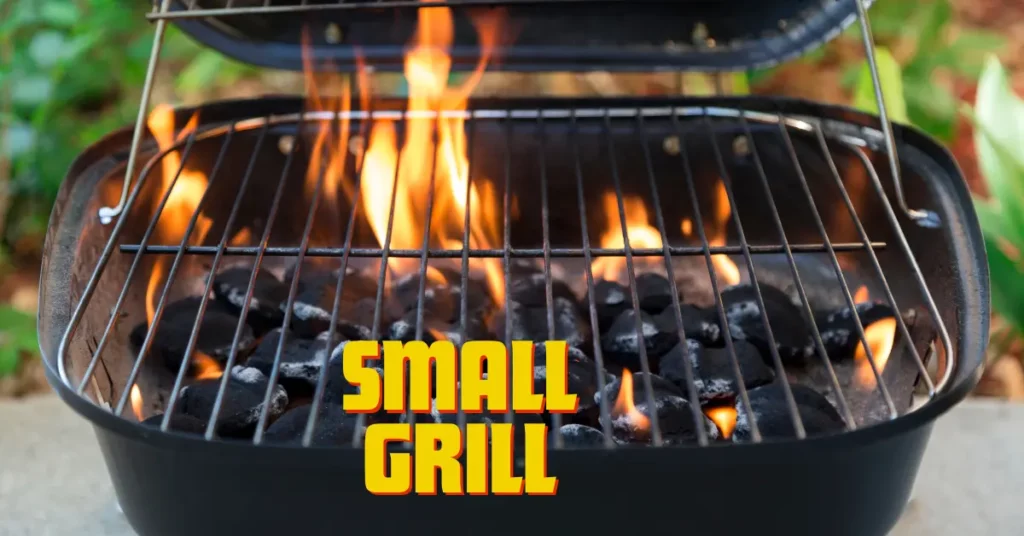This post may contain affiliate links. If you use these links to buy something we may earn a small commission. Thanks.
Preheating your grill is a crucial step that ensures even cooking, enhances flavor, and prevents food from sticking. However, if you’re using a small grill, you might wonder how long it actually takes to reach the ideal temperature. The preheat time can vary depending on several factors, such as the type of grill, fuel source, and weather conditions.
In this guide, we’ll break down everything you need to know about preheating a small grill, including estimated times for different grill types and best practices to get the most out of your grilling session.
Factors That Influence Preheat Time
1. Type of Grill
The kind of grill you use plays a major role in determining how long it takes to preheat. Different grills have unique heating mechanisms:
- Gas Grills (Propane/Natural Gas): Heat up quickly, usually within 5-10 minutes.
- Charcoal Grills: Take longer, as the coals need time to ash over, typically around 15-20 minutes.
- Electric Grills: Depend on wattage but generally take 10-15 minutes to reach the desired temperature.
2. Grill Size & Design
A small grill typically preheats faster than a large one due to its compact cooking area. However, grills with thicker grates or insulated walls may take slightly longer to heat up.
3. Weather Conditions
The outdoor temperature and weather conditions impact how long it takes for your grill to preheat. Cold or windy weather can extend preheating times, whereas grilling in warm conditions helps maintain steady heat levels.

4. Fuel Type & Efficiency
- Gas: Heats up consistently and quickly, especially with a well-maintained burner.
- Charcoal: Takes longer because the coals need to ignite and reach the optimal cooking temperature.
- Electric: Takes longer in cold weather as the heating element requires consistent power.
Estimated Preheat Times for Different Small Grills
Gas Grill (Propane/Natural Gas)
- Preheat Time: 5-10 minutes on high heat
- Best for: Quick meals, grilling meats, and veggies
- Indicators: When the built-in thermometer reaches 400-450°F
Charcoal Grill
- Preheat Time: 15-20 minutes for coals to ash over
- Best for: Smoking, slow-cooked meats, and high-heat searing
- Indicators: Coals should turn grayish-white before cooking
Electric Grill
- Preheat Time: 10-15 minutes depending on wattage
- Best for: Apartment-friendly grilling, indoor use
- Indicators: Light indicator or when the grates feel hot to the touch
Best Practices for Preheating
1. Keep the Lid Closed
Closing the lid while preheating allows the grill to trap heat more effectively, cutting down on the time required to reach the right temperature.
2. Use a Grill Thermometer
A built-in or external thermometer helps monitor the temperature accurately. For precise cooking, aim for:
- Low heat: 250-300°F
- Medium heat: 350-400°F
- High heat: 400-500°F
3. Set Up Heat Zones
For charcoal and gas grills, creating different heat zones improves cooking efficiency. Place coals on one side for direct heat and leave an open space for indirect heat cooking.
Troubleshooting Slow Preheating
If your grill takes longer than expected to heat up, consider these solutions:
- Gas grill issues: Check for clogged burners or low propane levels.
- Charcoal not igniting properly: Use a chimney starter for even heat distribution.
- Electric grill taking too long: Ensure the grill is plugged into a high-wattage outlet and avoid using extension cords.
Conclusion
Allowing your small grill to properly preheat ensures better cooking results, enhanced flavor, and improved efficiency. While gas grills can reach the right temperature in as little as 5-10 minutes, charcoal grills require patience with a 15-20 minute preheat time. No matter the type, following best practices like keeping the lid closed, using a thermometer, and troubleshooting any slow heating issues will lead to a seamless grilling experience.
Now that you know how long to preheat your grill, fire it up and get ready for delicious meals.
